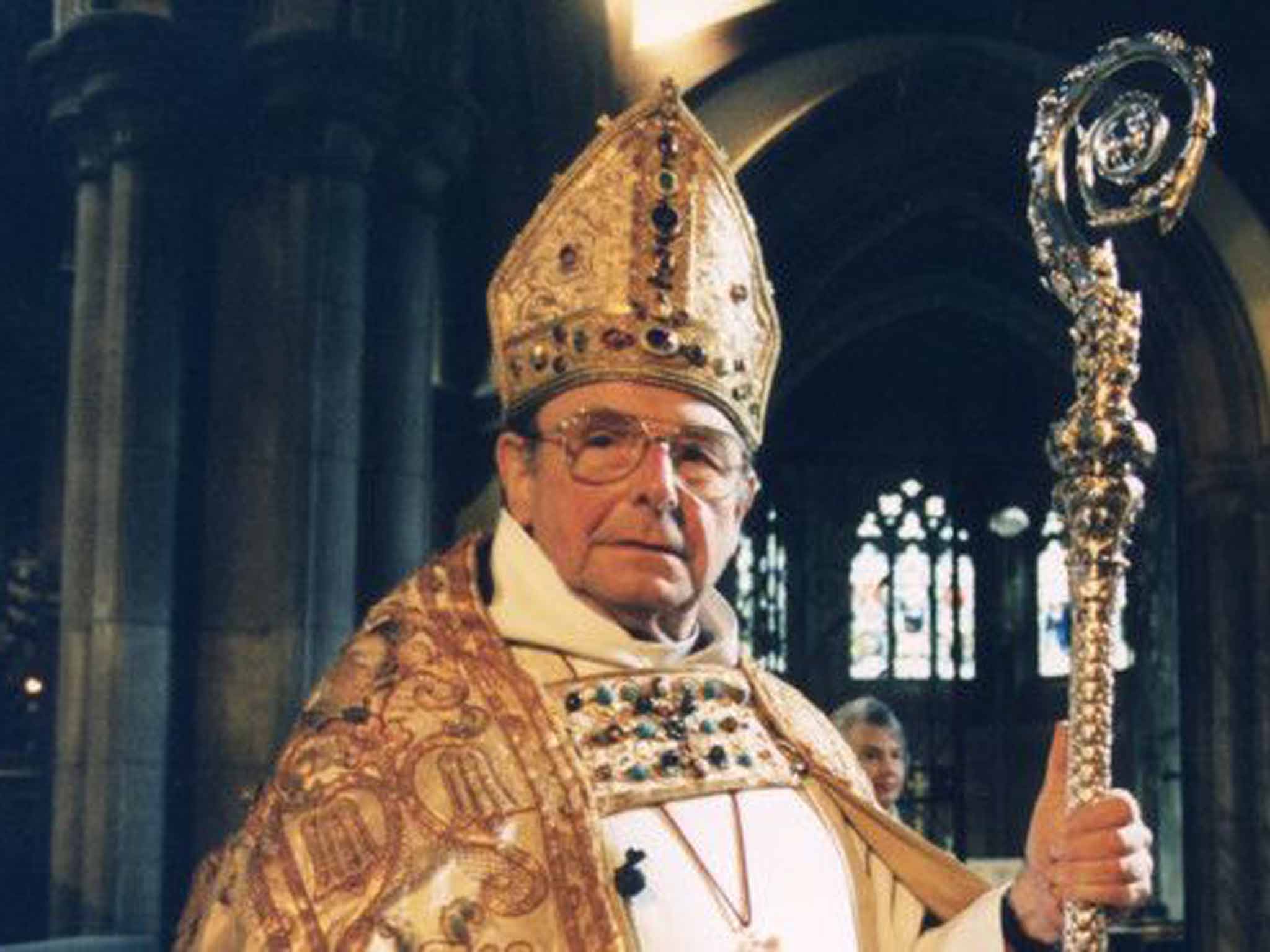Rt Rev Michael Hare Duke: Admired Episcopal bishop unafraid of the controversy caused by his views on social and theological issues
He infuriated ecclesiastical opponents as one of the earliest clerics to give vent to the idea of women priests

Michael Hare Duke was a brave and significant Church leader. Never did he shrink from controversy. His causes and issues were sometimes unpopular, but never trivial.
I first came to know him when we shared platforms in 1982, in opposition to the Falklands War; his position with his "electorate" was infinitely more difficult than mine. As Episcopal Bishop of St Andrews, Dunkeld and Dunblane he represented Perth, home of the fierce and famous Black Watch Regiment. Many of the important members of his flock were retired Army officers, active members of the Episcopal Church (which might be described, not kindly, as Scotland's branch of the Church of England); in 1982 most, if not all, backed Margaret Thatcher and "our boys" to the hilt.
Hare Duke preached peace and told them they were wrong. While they later came to admire him, in 1982 there were moves to destool him. But Hare Duke yielded not an inch as the Fleet sailed towards the Falklands.
Equally, he did not shrink from theological controversy. He infuriated ecclesiastical opponents – including senior colleagues in a position to deny him the preferment he clearly merited – as one of the earliest clerics to give vent to the idea of women priests. He also entertained ecumenical views, and wrote shortly after his arrival in Perth, "I'd love to see the day when we are part of the Church of Scotland." Episcopal friends in the have told me they are in no doubt that Duke's views denied him the chance of becoming Bishop of Edinburgh and Primus of the Episcopal Church.
Michael Geoffrey Hare Duke was born in Calcutta; his father was a Scots/Irish civil engineer who helped build the Indian railway system. He would become well-known in Lancashire for the welcome he afforded members of the Indian and Pakistani communities in the cotton towns when he was Vicar of St Mark's, Bury, from 1956-62. He would also recall the kindnesses of the Indian women who had administered to his every need as a child.
Sent home to Bradfield at the age of 12, he was much influenced by the robust Christian views of his headmaster, TD Hills, who had been a House Master at Eton. Duke recalled to me with embarrassed pleasure how he had thrilled both Hills and himself by beating his Etonian opponent in the Quadrangular boxing competition, and going on to a points victory against an even tougher opponent from Haileybury and Imperial Services College.
From Bradfield Hare Duke became a sub-lieutenant in the Navy towards the end of the Second World War. "When as a 19-year-old you have gone to your bunk every night wondering whether a U-Boat would strike your ship, you become a bit cautious of sending a huge armada to the South Atlantic."
Demobilised in 1946, he took up his place at Trinity College, Oxford, where he became involved in High Anglican circles, and on completing his degree he trained for the ministry at Westcott House in Cambridge. His first post was as Curate of St John's Wood Church – "which meant that I could pop in to Lord's." After St Mark's in Bury he spent two years as Pastoral Director of the Theological Association, during which time he wrote his first book, The Caring Church.
His second, Understanding the Adolescent, was published in 1969, when he was Vicar of St Paul's, Daybrook and Pastoral Consultant to the Clinical Theological Association. It was an eye-opener for me – and for others mystified by the vibrant and assertive youth of the 1960s. His other works included a volume on Sigmund Freud (1972), Stories, Signs and Sacraments in the Emerging Church (1982) and One Foot in Heaven (2001). His elegant and well-sculpted prose illuminated difficult concepts. It was partly his clarity of expression in dealing with delicate moral dilemmas which made him a regular choice in the 1970s and '80s for "Thought for the day" on the Today programme.
The crowning moment of Hare Duke's time as Bishop came in the summer of 1989, when his 20 years as Bishop of St Andrews was celebrated with a special Eucharist, a reception, and a picnic on the lovely North Inch lawn on the banks of the River Tay. Characteristically (to the consternation of some of his colleagues), he arranged for the Eucharist to be distributed solely by women, and for the Service to involve more laity than clergy. He lost few opportunities to make a provoking point. Chairman of the Scottish Association for Mental Health (1978-85), he had the admiration of his countless friends by the loving way in which he cared for his wife, who was known as Baa, during years of Alzheimer's.
Michael Geoffrey Hare Duke, church leader: born Calcutta 28 November 1925; Royal Navy 1944-46; Bishop of St Andrews, Dunkeld and Dunblane 1969-94; married 1949 Grace Dodd (died 2012; three daughters, one son); died Perth, Scotland 15 December 2014.
Subscribe to Independent Premium to bookmark this article
Want to bookmark your favourite articles and stories to read or reference later? Start your Independent Premium subscription today.

Join our commenting forum
Join thought-provoking conversations, follow other Independent readers and see their replies